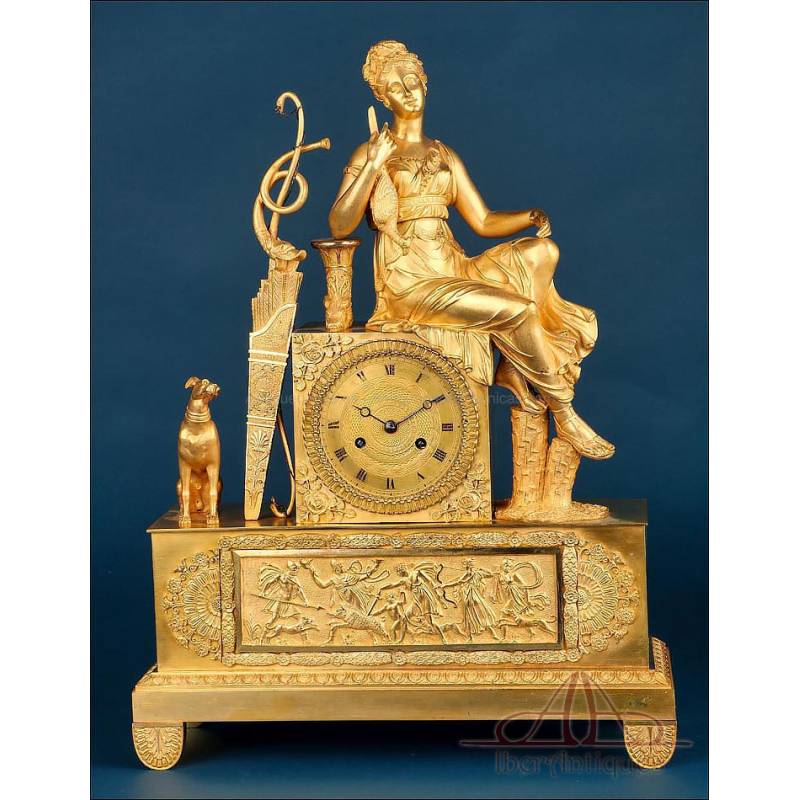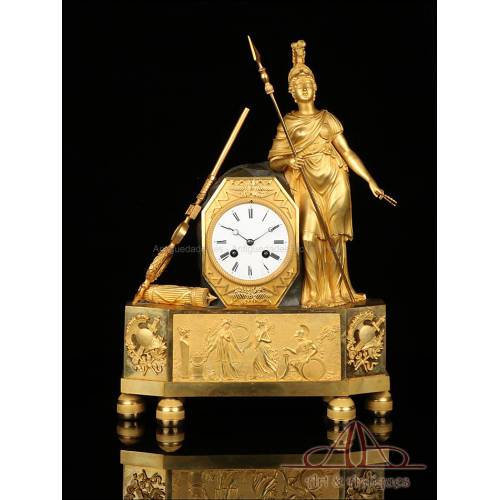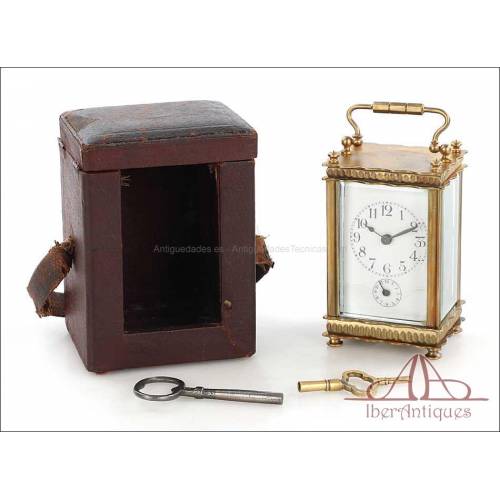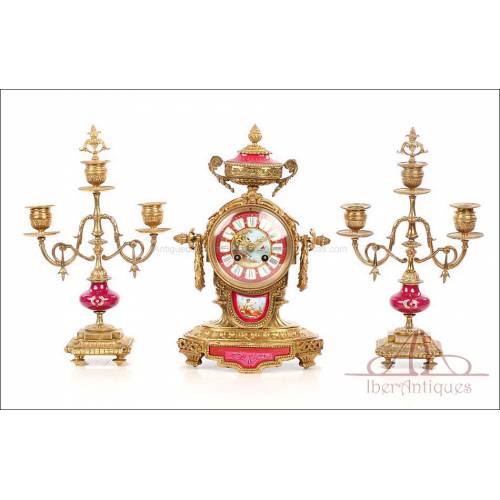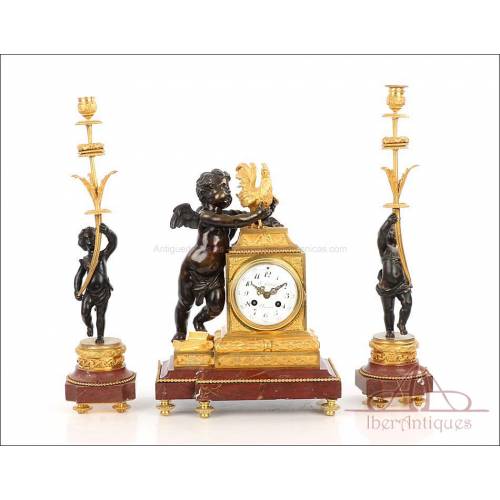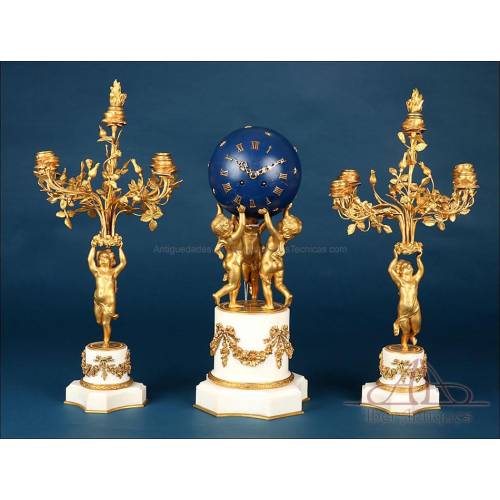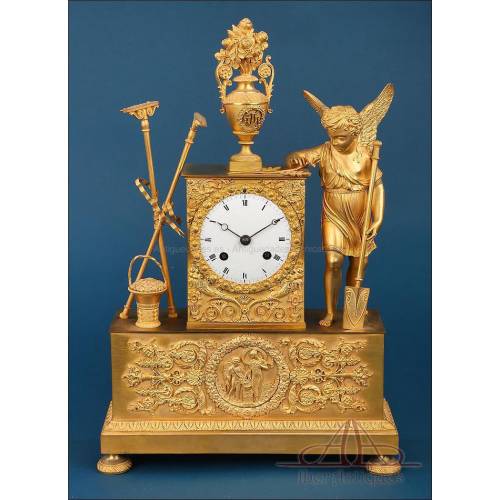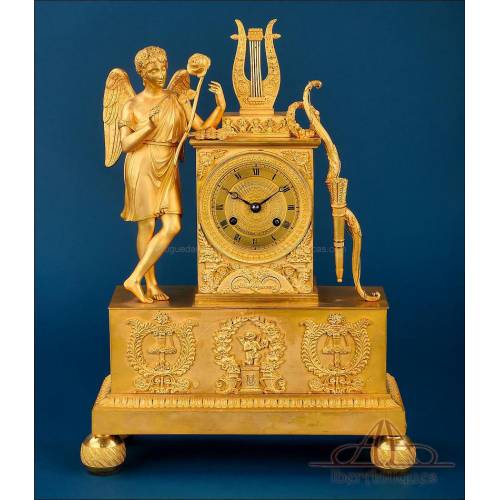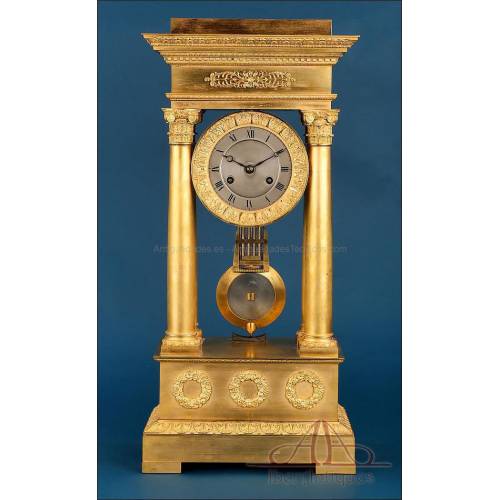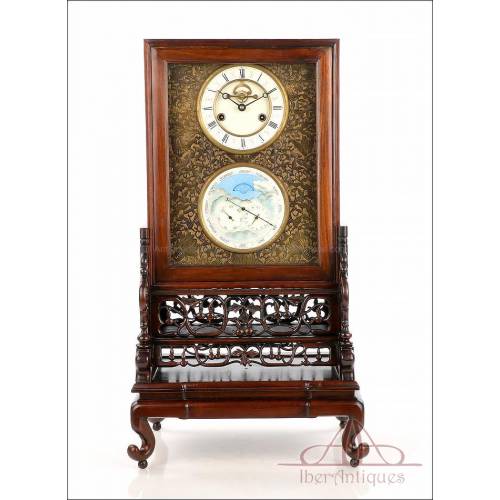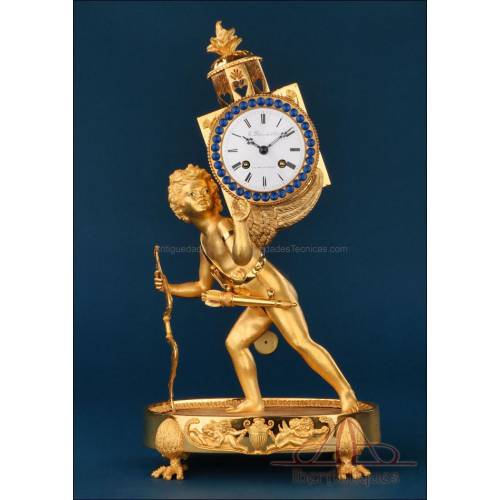E-139
Elegant Antique Gilded Bronze Clock, France ca 1850 - Diana the Huntress
Antique French gilded bronze clock ca. 1850. Diana the Huntress seated relaxed, with bow and dog. Parisian 7-day movement, silk suspension, with original key.
Antique Gilded Bronze Mantel Clock. Diana the Huntress. France ca 1850
This majestic gilded bronze mantel clock, originating from France and dating to around 1850, is an exceptional example of 19th-century decorative arts, combining exquisite craftsmanship with profound mythological symbolism. The clock's central piece is a representation of Diana the Huntress, the Roman goddess of the hunt, nature, and the moon, depicted in a relaxed and contemplative posture. Diana is elegantly modeled in gilded bronze, with a serene and majestic expression, symbolizing the calm and control inherent in her mythological figure.
Beside her rests a bow, carefully placed along with a quiver of arrows, classic symbols of the hunt. A faithful dog, a constant companion in hunts, is also present, completing the narrative of hunting and loyalty. The sculpture of Diana does not hold the bow but instead rests comfortably, suggesting a moment of respite after the hunt, a detail that adds a human and relatable touch to the divine representation.
The base of the clock is adorned with an intricate relief depicting a lively hunting scene, where human and animal figures interact in a dynamic composition. This relief not only stands out for its detail and precision but also reflects the exceptional skill of the craftsman in creating complex and detailed scenes in such a demanding material as gilded bronze.
The clock's movement, crafted in Paris, is a 7-day winding mechanism with silk suspension and bell strike, typical of high-quality clocks of the period. This mechanism ensures precise and reliable operation, providing a clear and melodious chime that marks the hours with timeless elegance. The piece retains its original key, a detail that adds value and authenticity, allowing the owner to maintain the mechanism in perfect working order.
In terms of preservation, the clock exhibits gilding that has admirably withstood the test of time, maintaining its original shine and detail. The decorative elements, from the figure of Diana to the floral and geometric ornaments, are in excellent condition, reflecting the splendor of an era when art and functionality were intertwined in luxurious everyday objects.
This clock is not merely a timekeeping instrument but a work of art that captures the essence of an era of opulence and refinement. It is an ideal piece to enhance the decor of a sophisticated home or to include in a collection of historical objects. With its presence, this clock adds a touch of nobility and sophistication to any setting, evoking the grandeur of 19th-century aristocratic salons.
Dimensions: 51 cm x 37 cm x 11.8 cm (20 in x 14.57 in x 4.65 in).
History of Gilded Bronze Clocks
Gilded bronze mantel clocks, known as "ormolu," gained great popularity in France during the 18th and early 19th centuries. The mercury gilding technique used in these clocks involved applying a layer of gold to bronze, creating a bright and durable finish. This technique, although no longer used due to health risks, was the luxury standard of its time. Mythological and classical themes, such as that of Diana the Huntress, were popular, reflecting the era's interest in antiquity and neoclassical ideals.
The creation of these clocks involved the collaboration of various artisans, including sculptors, gilders, and clockmakers, who worked together to create functional and decorative art pieces. Clocks with Parisian mechanisms were especially valued, as Paris was the center of luxury and fashion. These clocks not only served as precise timekeeping instruments but also as symbols of status and cultural refinement.
Today, gilded bronze clocks are highly prized by collectors and decorators for their aesthetic beauty and representation of an era when craftsmanship and art were deeply valued. They are pieces that not only embellish a space but also tell rich and detailed stories of past times.

